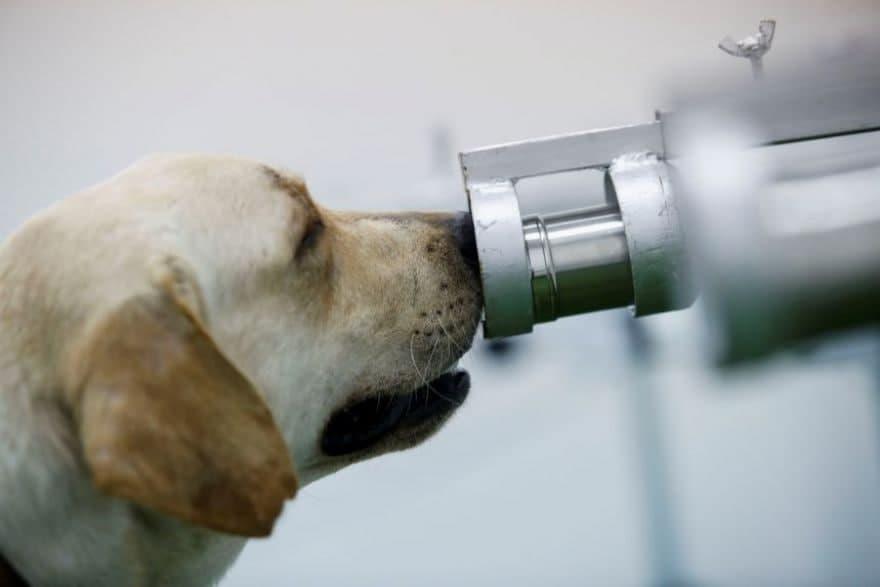PARIS, May 24 (AFP) - Dogs can be trained to detect more than 90 per cent of COVID-19 infections even when patients are asymptomatic, according to research published on Monday (May 23), which authors hope could help replace the need to quarantine new arrivals.
Using their remarkable sense of smell - which can pick up the equivalent of half a teaspoon of sugar in an Olympic-sized swimming pool - dogs have already shown that they can sniff out maladies such as cancer, malaria and epilepsy.
Several previous studies have shown proof-of-concept that dogs can detect SARS-CoV-2.
Researchers from the London School of Tropical Medicine wanted to see if dogs could detect a distinctive odour given off from chemical compounds associated with someone who is COVID-19 positive but doesn't show symptoms.
They gathered samples of clothing and face masks from people who had tested positive for mild or symptomatic SARS-CoV-2.
Samples of the socks of 200 COVID-19 cases were collected and arranged in lab tests for six dogs that had been trained to indicate either a presence or absence of the chemical compound.
The dogs needed to be trained not to identify "false positives" in a bid to hack their reward system and obtain treats even if there were no COVID-19 samples in a given test.
"This means that the dog fully understands and gets a reward for a correct negative as well as a correct positive," said Claire Guest, from the school's Faculty of Infectious and Tropical Diseases.
Overall, the dogs were successfully able to identify between 94 and 82 per cent of SARS-CoV-2 samples.
The researchers then modelled how effectively these success rates, combined with traditional PCR tests, could help detect mild or asymptomatic COVID-19 cases.
They found that using dogs to screen arrivals at terminuses such as airports could detect 91 per cent of cases, resulting in a 2.24 times lower rate of transmission than with PCR tests alone.


